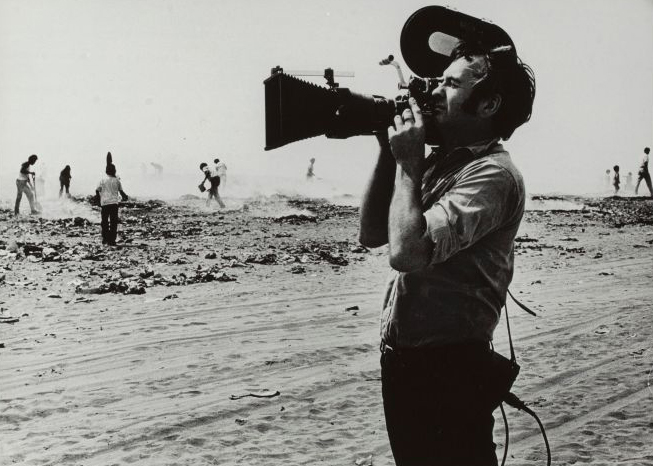
by Johan van der Keuken
Excerpt from a conversation with Robert Daudelin in Cinématheque Quebecoise, Montreal, October 1974.
As a filmmaker, I thus inhabit the world of the image, a world halfway between myself and reality. I believe that, ideally speaking, the film viewer is in a comparable position. For a variety of reasons, we have abandoned the idea of reality as a self-contained entity existing outside and independently of us. So if you don’t wish to take the position of someone watching an external reality from the outside, but rather of someone who is observer and participant at the same time, then you’re facing the problem of how to define yourself as an individual, or how, as an observer, you are to see yourself. Who is the person who makes, and who is the person who sees?
Of course you can not deny that there is subject matter. A film is about very clear things, living conditions, modes of production, power relations. . . . But they are not established facts that you then simply translate into a film. On the contrary, whatever knowledge there is, is acquired by making the film. So there is no point in asking me anything else about the subject matter, since everything I know is already in the film. The film is the result of the learning process. And the learning process, you might say, repeats itself in the viewer. The viewer is to the film what the film is to reality. Reality consists of infinite numbers of images, infinite numbers of lives. And yet there are long passages in my films where hardly anything happens at all, the long shots of the windows at the end of The Spirit of the Time, the long corridor in Diary, the endless observation of three beds in The New Ice Age. To me, those are very important moments, because the film no longer provides information at a “normal” rate, and the viewer is left to his own devices.
He has to realize he is looking at a screen. He has to define his own position. I think the viewer faced with this situation–if and when he is willing to go along with it–is able to acquire a kind of knowledge that differs, in its very essence, from the kind of knowledge acquired in conventional education. There the knowledge comes ready-made from an outside source, whereas here the viewer can go look for it himself by consciously taking a stand with respect to the reality of the film. To me it has to do with the idea of “democracy at the basis,” where everyone occupies an approximately equal position regarding the knowledge available. Knowledge does not come from above, everyone can go for it.
The complete interview (in French) can be found in ‘Voyage à travers les tours d’une spirale‘ (dossiers de la cinématheque Quebecoise nr. 16, 1984)